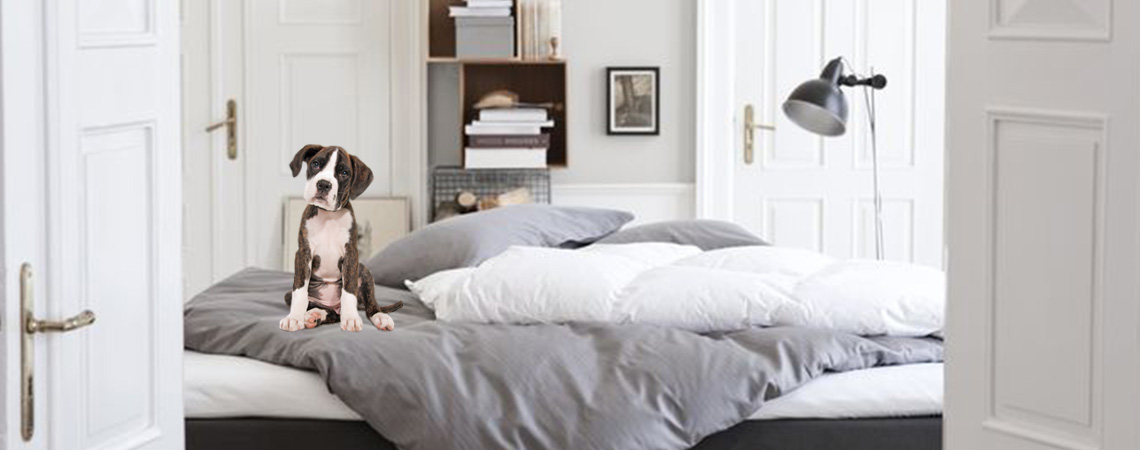Should you allow your dog in your bed? There are various opinions about the matter, both for and against. Read on and learn about the pros and cons of your dog sleeping in your bed.
For and against sleeping with your puppy
Some think that the benefits of sleeping with your dog far outweigh the drawbacks, and vice versa. Read the arguments for and against pets in bed and then you can judge for yourself.
|
Benefits of dogs sleeping in bed:
|
Drawbacks of dogs sleeping in bed:
|
Research points in different directions
It's hardly surprising if you are still undecided about whether or not it is the best idea to have your dog in the bed. There have been many studies identifying the pros and cons of giving man’s best friend room under the covers. This research is contradictory and speaks both for and against having a dog in your bed.
Better or worse sleep?
Dogs have different sleeping patterns than humans. Dogs wake up more than once during the night, therefore this can disturb your sleep when your dog rolls over, especially if you're a light sleeper. However, the counterargument is that the dog’s presence in the bed creates a mutual security that can actually result in better sleep!
Cosy but not the cleanest of company
It is cosy, but also a little unhygienic, to have dogs sleeping in bed. Sleeping next to your dog can relieve stress and anxiety because the dog’s presence activates the oxytocin hormone. This chemical reaction helps lower blood pressure. Therefore, many people can benefit from a dog sleeping in bed.
However, with a dog sleeping in bed you risk getting more than just soft fur under the covers. Dogs and other pets can bring fleas, ticks and in rare cases pathogenic bacteria to bed, such as ringworm, tapeworms, Campylobacter, parasites and bacteria from urine and faeces in their fur.
Dust mites will love dogs sleeping in bed since they feed on dead cells and hair, which will increase with your puppy in your bed. Your bed will require careful cleaning when your dog sleeps in it, so do remember to change the bedding as often as you can.
Make a final decision about where your dog sleeps
Your dog needs you to make a decision one way or the other about whether it can sleep in your bed. If you let your dog sleep in your bed off and on, it will be confused when you do not let it. The key is to get the dog used to sleeping on a flat surface. Most dogs do well whether they sleep in your bed or in their own basket.
If you already have a dog sleeping in bed but want it to sleep in its own basket, you can gradually get it used to sleeping there. At first the dog should sleep next to your bed and you can put your hand down to calm the dog. Eventually the dog will get used to the new sleeping place, but it may take a few weeks for it to adjust to the new routine.
Sources:
http://www.mayoclinicproceedings.org/article/S0025-6196%2815%2900674-6/fulltext
http://www.akc.org/news/study-sleeping-with-pets-may-be-beneficial/
http://www.everydayhealth.com/pet-health/allowing-dogs-in-bed.aspx

